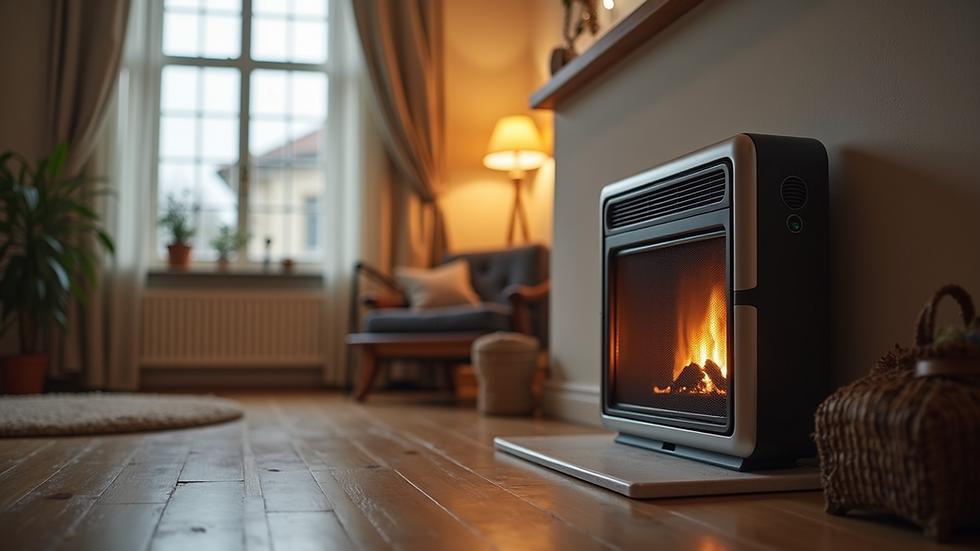Affordable Heating Solutions with Simple Pricing Plans
- keithlongislandha
- Sep 19
- 4 min read
Updated: Sep 20
As the chilly months approach, many of us start to think about how to keep our homes warm without breaking the bank. Heating can be a significant expense, but it doesn't have to be. There are affordable heating solutions available that come with simple pricing plans. In this post, we will explore various options that can help you stay warm while keeping your budget intact.
Understanding Your Heating Needs
Before diving into specific solutions, it is essential to understand your heating needs. Every home is different, and factors such as size, insulation, and climate play a crucial role in determining how much heating you will require.
Assessing Your Home
Start by assessing your home. Consider the following:
Size of the space: Larger homes will need more heating than smaller ones.
Insulation quality: Well-insulated homes retain heat better, reducing the need for constant heating.
Local climate: If you live in a colder area, you may need a more robust heating solution.
By understanding these factors, you can make informed decisions about which heating solutions will work best for you.
Types of Affordable Heating Solutions
There are several affordable heating solutions available today. Here are some of the most popular options:
1. Electric Heaters
Electric heaters are a common choice for many households. They are easy to use and can be quite effective in smaller spaces.
Pros:
- Affordable upfront cost
- Portable and easy to move
- No installation required
Cons:
- Higher operating costs compared to other heating methods
- May not be suitable for larger areas
2. Gas Heaters
Gas heaters are another popular option. They can be more cost-effective in the long run, especially if you already have a gas line in your home.
Pros:
- Lower operating costs compared to electric heaters
- Heats up quickly
Cons:
- Higher initial installation costs
- Requires proper ventilation
3. Heat Pumps
Heat pumps are an energy-efficient option that can both heat and cool your home. They work by transferring heat from the outside air into your home.
Pros:
- Energy-efficient
- Can be used year-round
Cons:
- Higher upfront costs
- May not be effective in extremely cold temperatures
4. Wood or Pellet Stoves
For those who enjoy a more traditional heating method, wood or pellet stoves can be a great choice. They provide a cozy atmosphere and can be very cost-effective.
Pros:
- Renewable energy source
- Can significantly reduce heating bills
Cons:
- Requires regular maintenance
- Needs space for wood storage
Simple Pricing Plans
When considering heating solutions, it is essential to look at the pricing plans available. Many companies offer simple and transparent pricing, making it easier for you to budget.
Monthly Payment Plans
Some heating solutions come with monthly payment plans. This option allows you to spread the cost over several months, making it more manageable.
Example: A company may offer a heat pump installation for $3,000, with a monthly payment of $250 over 12 months.
Pay-As-You-Go Options
Pay-as-you-go options allow you to pay for heating as you use it. This can be beneficial for those who may not need constant heating.
Example: Some electric companies offer pay-as-you-go plans where you only pay for the electricity you use for heating.
Fixed-Rate Plans
Fixed-rate plans lock in your heating costs for a specific period. This can provide peace of mind, knowing that your heating expenses will not fluctuate.
Example: A gas company may offer a fixed rate of $1.50 per therm for the entire winter season.
Tips for Reducing Heating Costs
In addition to choosing the right heating solution, there are several tips you can follow to reduce your heating costs.
1. Use Programmable Thermostats
Programmable thermostats allow you to set specific heating schedules. This means you can lower the temperature when you are not home, saving energy and money.
2. Seal Drafts
Check for drafts around windows and doors. Sealing these gaps can prevent heat from escaping, making your home more energy-efficient.
3. Maintain Your Heating System
Regular maintenance of your heating system can improve efficiency and extend its lifespan. Consider scheduling annual check-ups with a professional.
4. Layer Up
Sometimes, the simplest solution is to wear warmer clothing indoors. Layering up can help you feel comfortable without cranking up the heat.
Making the Right Choice
Choosing the right heating solution for your home can be overwhelming. However, by understanding your needs and exploring various options, you can find an affordable solution that fits your budget.
Consider Your Lifestyle
Think about your lifestyle and how often you will use your heating system. If you are home most of the time, investing in a more permanent solution may be worthwhile. If you are rarely home, portable heaters or pay-as-you-go options might be better.
Research Local Providers
Take the time to research local heating providers. Look for companies that offer transparent pricing and good customer service. Reading reviews can also help you make an informed decision.
The Importance of Energy Efficiency
Energy efficiency is not just about saving money; it is also about reducing your carbon footprint. By choosing energy-efficient heating solutions, you can contribute to a healthier planet.
Benefits of Energy Efficiency
Lower utility bills: Energy-efficient systems use less energy, which translates to lower bills.
Environmental impact: Reducing energy consumption helps decrease greenhouse gas emissions.
Increased comfort: Energy-efficient systems often provide more consistent heating, improving overall comfort in your home.
Final Thoughts
Finding affordable heating solutions with simple pricing plans is possible. By understanding your heating needs, exploring various options, and considering energy efficiency, you can keep your home warm without overspending.
As the temperatures drop, take the time to evaluate your heating options. With the right approach, you can enjoy a cozy home all winter long without the stress of high heating bills.



Comments